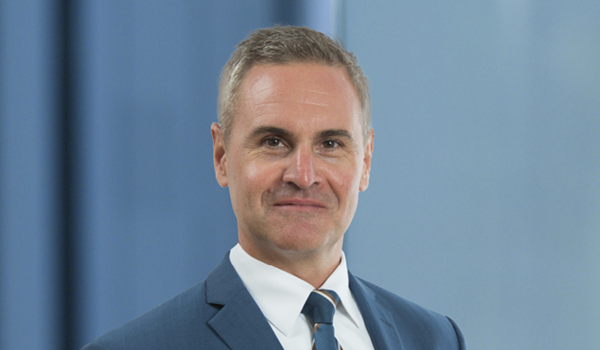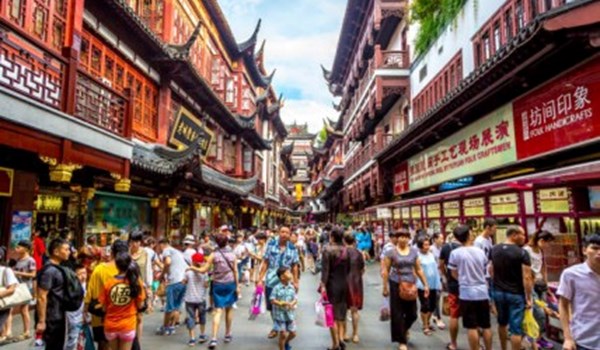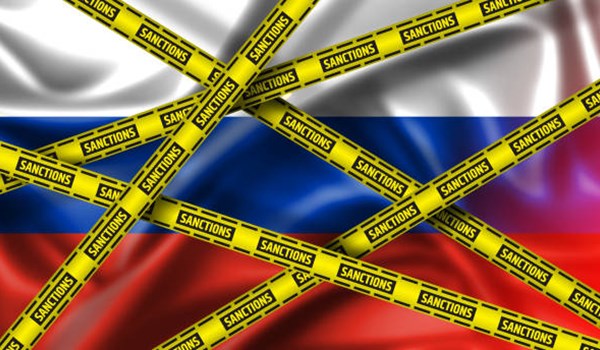On Wednesday, last week, the Chairman of the Economic and Financial Crimes Commission, Ola Olukoyede, disclosed that it had uncovered a religious sect in Nigeria involved in money laundering for terrorists. Additionally, he revealed that another religious body was found to be protecting a money launderer, as funds suspected to be laundered were traced to its bank account.
Olukoyede shared these findings during a dialogue on “Youth, Religion and the Fight against Corruption” at the Musa Yar’Adua Centre in Abuja. Indeed, money laundering has metastasised into a malignant tumour in Nigeria’s economy, politics and national fibre. By providing the ultimate sanctuary for dark money to not only secure immunity but purchase impunity, unchecked laundering has severely sabotaged Nigeria’s growth story.
From the shadowy alleys of narcotics trafficking to the gilded halls of corruption, billions in ill-gotten profits are injected into legitimate financial channels annually, enabling criminality to fester while bleeding Nigeria dry. This breakdown of accountability and defeat of justice has allowed a crooked collection of strange bed fellows to capture politics, business and even sectors of society to pursue self-enrichment at the expense of national advancement.
Glo
Although money laundering in Nigeria finances diverse crimes, the methods remain remarkably standard. From moving bulk cash from criminal activities into the banking system to smurfing, trade-based laundering like invoice manipulation and currency smuggling or hiding illicit funds through the purchase of assets, crooks have appear to have mastered the act through complex transactions to mask the illicit origin. Offshore shell companies, fake loans, front businesses and investments channel transfers through financial centre blacklist jurisdictions to Iran, China, Dubai and tax havens like Seychelles and Cayman Islands.
Once laundered, integration completes the washing cycle as money re-enters Nigeria “cleansed” as legitimate wealth. Plush real estate, luxury assets, political expenditure and starting apparently lawful corporations and non-profits represent integration endpoints.
This elaborate financial circus attracts both big fish like corrupt government officials and cartel henchmen along with a plethora of enablers like bank officials, lawyers and external middlemen who keep the carousel running for cuts. And the deep pockets this network accumulates by draining Nigeria finances impunity.
The ceaseless leakage facilitated by laundering takes away vital capital needed for Nigeria’s economic upliftment. As the EFCC chairman approximated, 30 per cent of Nigeria’s output, counting for billions in US dollars, vanishes annually through laundering channels. These parallel illicit flows rival and perhaps overwhelm government expenditures, miring us deep in underdevelopment.
They nourish the underground cash-based informal economy that suffocates legitimate business. Licensed enterprises struggle with credit unavailability, infrastructural inadequacies and red tape while ill-gotten empires next door rake profits unbound by regulations or taxes. This precipitates bankruptcies and soaring unemployment.
Moreover, extensive tax evasion through laundering directly bleeds Nigeria’s revenues dry, affecting infrastructure projects, social services investments and institutions vital for national progress. While roads crumble and hospitals wilt, laundered funds construct palatial getaways on Victoria Island or in Dubai for unscrupulous moneybags.
To conceal tracks and frustrate investigations, politically-backed interference has reduced anti-corruption bodies like the EFCC or ICPC into paper tigers. The few corruption cases that proceed to court face interminable delays from an overwhelmed judiciary. Appeals upon appeals allow indicted VIPs years outside prison bars before verdicts materialise. A former Abia State governor, Orji Uzo Kalu’s conviction took 12 years, while ex-Adamawa governor Bala Ngilari was acquitted on technicalities. This tardiness amputates the capacity to recover looted assets or repair damages from plundering. It also broadcasts incentives for prospective looters that crime pays in Nigeria.
The extraordinary weakness in monitoring laundering has granted attempts to fund violence free rein. In damning disclosures, the UAE listed dozens of Nigerian individuals and organisations funnelling cash towards Boko Haram and groups causing carnage across the Middle Belt. Bank accounts of prominent politicians and business partners are linked to this enterprise that arms bloodletting.
Yet, collaborators in this illicit business openly ply their trade undisturbed by Nigerian law enforcement agencies. In fact, most of them are well-connected to power. Such free licence to mobilise mayhem through laundering imperils Nigerian lives incessantly besides reputational battering.
Ultimately this paradigm where accountability exists only as rhetoric allows money laundering to strangulate Nigeria’s potential in manifold ways. By incentivising graft that denies funds for development, condoning market manipulation, crippling institutions and permitting terrorism financing, the destructive fallouts pile up endangering Nigeria’s future.
Highlighting how the influential enjoy immunity from laundering prosecution, numerous cases merit scrutiny. In perhaps the loudest international example, Halliburton bribed senior Nigerian leadership $180 million and deposited another $130 million across Swiss accounts for liquefied gas contracts near $12 billion. Albert “Jack” Stanley, the bagman, even confessed to orchestrating this laundering extravaganza. Yet after returning a $150 million settlement, those involved in Nigeria have not seen handcuffs, evidencing their untouchability.
Even more appallingly, German conglomerate Siemens laundered over $100 million in SEC blacklisted payments to skew demand for $130 million telecom contracts in its favour. Siemens pleaded guilty in America, but Nigeria refused cooperation to identify the ministers on take. Little surprise that laundering thrives when patrons face no legal disincentive.
Domestically, a money laundering linchpin seen in 130 questionable bank transaction reports, Kola Aluko, was probed for helping oil minister Diezani Alison-Madueke wash $115 million by buying gala New York apartments. However, UK forfeitures never prompted Nigerian prosecution before Aluko smartly evaded the spotlight.
Most offensively, when whistleblowers exposed cash leaving the NIA to hush-hush pockets, rather than receiving commendations they faced witch-hunting. Little momentum exists to trace this state-sponsored laundering. With such failure of accountability, Nigeria appears resolute to keep haemorrhaging prosperity.
Marring Nigeria’s potential, an urgent course-correction is imperative with concerted efforts against laundering. Firstly, depoliticising financial probes could relieve institutional bottlenecks that stymie investigational progress. Where evidence leads, irrespective of stature, should dictate the course of investigations without meddling.
The legislature should prioritise birthing regulations mandating public registries clearly listing the beneficial ownership of companies, assets and bank accounts so corporate smokescreens prove useless. We should have a law that allows authorities to ask people to explain their source of wealth. The country today, according to reports,is now a major hub for illicit drugs and money laundering.
Moreover the judiciary requires capacity boosting for time-bound laundering prosecutions that weigh facts rather than personalities. Closure and recovery from fertiliser subsidy scams to pension fund disappearances remain a pipedream without a functional judiciary expediting judgement.
Internationally greater transparency and collaboration to immolate overseas laundering safehouses matter. Building institutional capability for global partnerships via avenues like UNODC and AfDB and activating multilateral instruments can expedite tracing, freezing and repatriating laundered loot.
The time for conveniently ignoring the Nigerian laundering pandemic is over unless another lost generation and drained economy sound appealing. Though the path ahead is laden with arduous challenges, political resolve can steadily redeem Nigeria’s future that is chained today as one of the world’s laundering capitals. The choices made now will irrevocably shape the country’s destiny.



